20. Slash - Slash (2010)
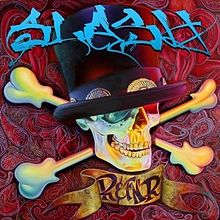
He’d been burnt by lead singers who were as difficult as they were charismatic, so when Slash finally went solo, it made sense for him to play the field.
As one of the world’s most popular rock’n’roll guitarists, he had a bulging address book, and so called on friends, colleagues, peers and heroes to take the mic on his 2010 solo debut.
Even with its scattered roll call, Slash was a cohesive, often thrilling album. A galaxy of stars orbited the hefty nucleus comprising the guitarist, seasoned drummer Josh Freese and Jane’s Addiction bassist Chris Chaney. One of Guns N’ Roses’ first US tours was with The Cult, so Ian Astbury’s opener Ghost marked a rebirth of sorts, as Slash traded riffs with old mucker Izzy Stradlin.
His buddy Lemmy tore into Doctor Alibi, his fuzzed-up Rickenbacker bass underpinning a funny, swinging rocker perfectly pitched between old-school GN’R and Motörhead. Iggy Pop’s back-of-a-beer-mat lyrics to We’re All Gonna Die (‘Gee I really like your tits/I’ll say anything that fits’) only added to this loose, punky mash-up of talents, but Ozzy Osbourne’s assured performance and lyrics made Crucify The Dead a rich autumn bloom for him. ‘We were like brothers/We had the world in our hands/You always had too much to say.’ (What could that possibly have been about?)
Slash’s guitar work here featured the trademark, creamy sound that producer Michael ‘Elvis’ Baskette would wring from him later on. And as ever, Slash showed himself as a song guy. His instinct for just what each tune required from him was honed and heightened: thrashy rhythm and blistering licks on Nothing To Say (with Avenged Sevenfold’s M Shadows); laconic wah‑wah break on Andrew ‘Wolfmother’ Stockdale’s psychedelic By The Sword; and spare, lyrical acoustic to enrich Rocco DeLuca’s haunting read of Saint Is A Sinner.
Restraint is the sign of true taste, and it was shrewdly employed on songs featuring the two big pop names which made the cut. Black Eyed Pea Fergie packed her humps, trunk and lovely lady lumps into rock-chick garb for Beautiful Dangerous, and it suited her well. Adam Levine brought some of Maroon 5’s smoothness to classy pearl Gotten, Slash’s guitar break the grit in the oyster.
If both these inclusions seemed unlikely, Chris Cornell proved a snugger fit with his strong contribution, Promise, while Kid Rock’s down-home I Hold On is a highlight. Dave Grohl and Duff McKagan’s turn on instrumental Watch This was a tantalising glimpse at a rhythm section now wowing crowds across some parallel universe.
In hindsight, though, it was Myles Kennedy’s superb brace of tunes that pointed the way to the future. The Conspiracy was on. The album peaked at No.3 on the US Billboard Chart, Kennedy would go on to front the world tour and the rest, as they say, is history – a little piece of which you can hold in your hands.
With Slash, our guy flicked away the butt of the past, nailed his name above the door and announced that he was open for business.
19. Black Star Riders - Heavy Fire (2017)
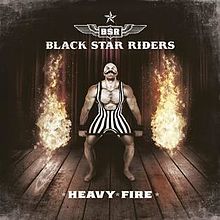
In the (sometimes) good old days, bands could take three albums or more to find their range and hit the mark. These days that rarely happens, because we all demand an instant impact. So let’s celebrate Black Star Riders. They gradually attuned their craft and style, building a solid foundation with two firm albums, both of which showed promise and hinted that things were about to take off.
And then, with Heavy Fire, the band made it all happen.
Listening to the record, firstly you noted the astonishing dual-guitar feed between Scott Gorham and Damon Johnson. It was powerful, palpably melodic and used to great effect, because it was never overemphasised.
Secondly, Ricky Warwick’s vocals had never before sounded so charismatic and at ease. He was telling stories, and did it without any affectation; you feel he was talking to you one-on-one.
Thirdly, the songs were fully rounded without ever seeming like they’d been too honed. Some bands ruin good ideas by making them sound like they’ve spent too long incubating. That was not the case with Heavy Fire.
Finally, Nick Raskulinecz did a splendid job with his production. He was combative enough for everyone to know he was involved, but knew the musicians well enough not to make the mistake of overloading things with unnecessary technical touches. The result was a cracking album that sets the tone with the opening strides from the title track and never lowered the bar over the following nine
Black Star Riders explored the blues in their own fashion with True Blue Kid, locked into a metallic groove for Ticket To Rise, gave a power ballad stir on Cold War Love and skirted across AOR territory with Testify Or Say Goodbye. And while the band do show they had a grip on various genres – you could hear hints of funk and even jazz at times – there was a cohesion throughout the record.
Our score: 8/10
18. Arctic Monkeys - AM (2013)
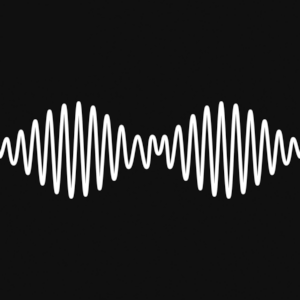
For almost every artist with any amount of longevity to their canon, it's possible to pinpoint the moment they morphed from simply another great band to genuine artistic leaders. For Arctic Monkeys, that moment was AM.
The fifth album in the band's career, AM was the moment four likely lads from Sheffield – who had originally made their mark on music in an era of The Inbetweeners and explicitly boisterous indie – grew up for good, convincingly shifting their stylistic leanings from public house to arthouse.
Swapping lyrical focus from the dance floors of the north for the poetry of John Cooper Clark (as in album closer I Wanna Be Yours, an adaptation of Clark's poem of the same name), AM looked inwards – towards personal turmoil, pitch black love and unrequited affection. For those of us dealing with nasty break ups in 2013? Catnip.
Their change in direction was largely touted as being down to Queens Of The Stone Age mastermind Josh Homme, who, coming on board for production duties during 2009's Humbug, had pointed them towards duskier, heftier grooves that took them to a heavier place than they'd been before. With AM, that shift in vision was fully realised.
The result was an album with bruising rock'n'roll at its heart, but which also cherry-picked from the myriad genres which caught songwriter Alex Turner's eye during its creation. He cited 90s hip-hop as an abiding influence, while throwing in dashes of motown, soul, funk and glam rock along the way.
Most significantly, AM proved that Arctic Monkeys had reached a place where they were embracing experimentation, challenging themselves and their listeners with each of its twists and turns.
17. Halestorm - Vicious (2018)
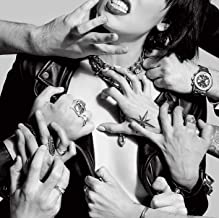
Probably the closest thing we have to a 21st-century Joan Jett figure, Halestorm’s Lzzy Hale is a sexy-tough frontwoman fully in charge of her band, image and career. Because the hard rock landscape is depressingly low on such female icons right now, the perma-touring Pennsylvania four-piece arguably enjoy more prominence than their fairly conventional, increasingly chart-friendly music merits.
Their 2015 album, Into The Wild Life, was widely criticised for sounding overly polished and poppy. This time around they covered a broad spectrum ranging from super-heavy grind to unashamedly tender balladry. Hardly groundbreaking stuff, but it was punchy and catchy and generally excellent.
Sounding at times like a fire-breathing she-dragon, Hale has long had a flair for lyrically deft rebel-girl songs that wear their feminist credentials lightly. As on the frenzied metal-punk single Uncomfortable, with its machine-gun litany of reasons for defying the patriarchal rule book and its melodic chorus. Or the stereotype-smashing garage rocker White Dress, which stomped all over fairy-tale princess clichés. This bad-ass attitude reached a delirious S&M peak on the album’s pounding, semi-mechanised title track.
Vicious was positively dripping with sex in places, but thankfully not the kind typical of testosterone-heavy hard rock. Do Not Disturb was a raunchy riff-blaster about a casual hotel-room hook-up containing lascivious lines like ‘I wonder what you sound like when you come.’ Subtle sub-text has never been one of Hale’s lyrical fortes.
More complex adult emotions also lurked behind the ragged, shredding licks that Hale trades with fellow guitarist and on-off boyfriend Joe Hottinger. Sex and love became tortuously entangled on tracks like Conflicted, a low-slung guttural stomper in vintage Joan Jett mode. Heart Of Novocaine, chronicling a traumatic break-up, trashed the idea of romance altogether. ‘Thank you for the pain, thank you for the hate, thank you for the way you left me scarred,’ Hale roared over crashing waves of acoustic guitar. Falling just the right side of bombastic melodrama, this arena-sized anthem could well still become Halestorm’s November Rain.
Halestorm will never be rule-bending revolutionaries, but with Vicious, they proved they know how to balance compact pop-metal dynamics with gritty, sexy, alluring garage-punk attitude.
Our score: 8/10
16. Rammstein - Rammstein (2019)
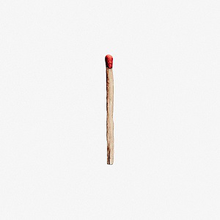
When Rammstein dropped in 2019, it had been a decade since the band last released an album. In that time their popularity had only mushroomed, thanks to their continuing live extravaganzas and the aura of mystery that surrounded them; they rarely gave interviews, they shunned personal social media accounts, and they calculated their every move.
Single Deutschland saw them return to music in spectacular fashion, with its controversial, high-concept video that swept through years of German history, including the Nazi regime. It was the band exploring their identity, and if it happened to stir the pot, then so what?
Their seventh, self-titled album carried on in this manner; it was peak, unashamed, undiluted Rammstein, commenting on human nature while pumping out noise that can level stadiums. Despite enlisting longtime collaborator Olsen Involtini instead of usual producer Jacob Hellner, it felt more ‘them’ than ever.
But Rammstein hadn’t lost their appreciation for the kitsch. Ausländer (Foreigners) was like a musical counterpart to Pussy: campy Europop that sounded like it could have been played at a foam party in the 90s. The simply titled Sex came swaggering on like Marilyn Manson’s cover of Personal Jesus – perhaps not surprising considering he was going through his Golden Age Of Grotesque period, inspired by the Weimar Republic.
The quirky sextet also ramped up their sinister side. On closer Hallomann, Till came across like a spine-chilling Pied Piper or Slender Man. Following in the footsteps of Wiener Blut was startling centrepiece Puppe (Doll). Till carefully intoned his words over gentle keys and picking, before breaking into vocals that were so aggressively desperate, it was like his stage-painted face was inches from yours, spraying spit on your skin and burning your soul with the whites of his eyes.
After 25 years together, Rammstein established a strong personality that was pushed to the max on this record. With this album, they established that they're still operating on another level.
Our score: 8/10
15. Royal Blood – Royal Blood (2014)
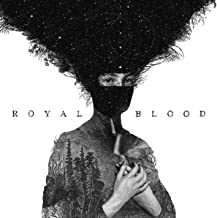
Back in 2014, Royal Blood were the rock world's most hotly tipped new band. At Download, the demand to see the drums’n’bass duo was such that the canvas they performed under was clearly three or four sizes too small. There was a definite real-world buzz, but what new and exciting tricks were Royal Blood pulling with their self-titled debut?
The answer turned out to be none: it was essentially Supergrass’s Gaz Coombes fronting Queens Of The Stone Age, or Muse’s Matt Bellamy writing melodies for Alice In Chains. Everywhere you looked you could find other bands, from Them Crooked Vultures to The White Stripes.
So there was a distinct whiff of ‘emperor’s new clothes’ to this racket when it dropped, but who could care when it was cut from such fine cloth?
This was a classic, thrusting, tune-filled debut, from the juddering Out Of The Black to the seesaw blues-rock of Better Strangers, via the huge singles Little Monster and Come On Over. It never lagged, which was all the more remarkable when you considered the limited palette in use (remember, there was no guitar on this album).
Our score: 9/10
14. Fantastic Negrito - Please Don't Be Dead (2018)
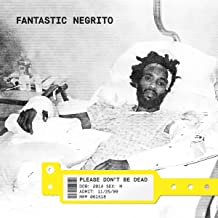
Fantastic Negrito will never be short of material. In his tumultuous life, the man born Xavier Dphrepaulezz has survived near-death experiences with gunmen, a near-fatal car crash that put him in a coma and cost him the use of a hand, million-dollar record deals and million-dollar record disasters, and grand disillusionment with the Hollywood lifestyle.
Thankfully, a unique background has made for a singular and spectacular multi-instrumentalist and singer.
Please Don’t Be Dead's roots burrowed deeply into the rich earth of the blues, and was inspired largely by addressing Dphrepaulezz's fears for the world his children are set to grow up in. It melded the personal with the political, completely unconfined by genre or self-censorship.
A Boy Named Andrew luxuriated in Middle Eastern vibes, Negrito’s characterful vocals dripping with soul; Dark Windows showcased the warm soul-baring of a master singer-songwriter; and the infectious and lingering closing track, Bullshit Anthem (‘Take that bullshit and turn it into good shit’) offered up an experience so insanely funky, you could imagine Prince looking down from his regal purple cloud and nodding in approval.
Prince aside, there were no other comparisons for Fantastic Negrito. He continues to dance to the beat of his own drum, and it’s hard not to want to join him.
Our score: 8/10
13. Black Sabbath - 13 (2013)
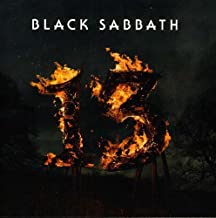
Okay, let's get it out of the way first: no, 13 isn’t as good as Black Sabbath's first six albums – what is? – but it’s a million times better than most of what followed, and way more than you could ever expect from a three men of pensionable age who proved all they had to prove 40 years ago.
Secondly: no, we didn't fix this album's placing in this list. Fate? Malevolent forces from beyond? Take your pick. Now, on to the matter at hand.
Sabbath might be the founding fathers of metal, but there’s no way they could have predicted how the scene would develop – make that mutate – over the decades. Given the intensity that characterises the modern-day scene, their decision to regroup with three-quarters of their ‘classic’ lineup for 13 was at best ambitious, at worst misguided.
But their 19th studio album started as it should: with an almighty riff. End Of The Beginning was Black Sabbath redux: an eight-minute wallop to the gut that ladled foreboding atmospherics onto tectonic grind, before stepping up its pace around a third of the way through. ‘Reanimation of the sequence rewinds the future to the past,’ howled Ozzy, and while the sentiment may have been pure Doctor Who-circa-1976 hokum, the delivery was gloriously clear-headed: the dead-eyed zombie who multi-tracked his way through his last few solo albums was nowhere to be heard.
They played it cunningly. Amid all the blind idolatry that has grown around the band, it’s easy to forget that every album recorded by the original quartet had its own personality: Black Sabbath was wide-eyed and bluesy; Paranoid swung from pole to emotional pole; Master Of Reality was a rush of blood to the head and Vol. 4 was the dense, druggy comedown; Sabbath Bloody Sabbath was wired and experimental; Sabotage was just mental. Even Technical Ecstasy and Never Say Die were different. Not good. Just different.
Here’s the thing: 13 didn't sound like any one of those albums. It sounded, at various points during its 70-minute length, like all of them: a riff here, a melody line there, the odd ‘Alright now!’ thrown in for good measure. And boy, did it work.
Gripes? Well, this wasn’t wholly Black Sabbath, as Ozzy himself admitted. Bill Ward was the Banquo at the 13 feast, a shadowy spectre lurking in the background as a partial reminder of the business concerns that clouded Sabbath's latter days days. Did the album miss him? Definitely. It lacked the wild edge he brought to matters, the sense that it could all fly off the rails at any point.
But what’s done is done. As time has told, 13 will remain Sabbath's final album. And it was the perfect way to close the circle.
Our score: 8/10
12. Ghost - Prequelle (2018)
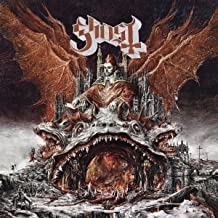
So by the time 2018 rolled around the jig was up, the black cat had escaped from the bag. Fake decrepit Ghost frontman Papa Emeritus had been officially outed as Tobias Forge, a 30-something Swedish hipster who tried his hand at everything from glam rock to death metal before hitting on the genius idea of combining cartoon Satanism with knowingly retro psych-pop tunes. Of course, it was the worst-kept secret in showbiz anyway – at least the corner of showbiz that dealt in tongue-in-cheek occult Scandinavian metal – but it was fun while it lasted.
The big reveal was inevitable after a group of disgruntled ex-bandmates hit Forge with a lawsuit. In truth, it couldn’t have come at a better time – after three increasingly successful albums, it was a gag waiting for a punchline that was taking its time arriving.
Prequelle didn’t serve up that punchline, but offered something even better instead: a set of subversive, contrary, frequently brilliant songs that pushed against the boundaries of metal’s self-imposed cult-hood. There were moments of arena-rock ambition, sly transgression and winking blasphemy, all sugared by the kind of pop nous that rock seemed to have misplaced years prior.
First single Rats was the perfect snapshot of where Ghost were at four albums in, hitching rat-a-tat riffing to a billowing melody that suggested they’d been listening to ABBA as much as they had Black Sabbath. This gleefully perverse marriage of the sacred and profane continued through the sweetly crunching See The Light and stately ballad Pro Memoria, reaching its logical conclusion with the genius one-two of Miasma and Danse Macabre. The former was a gradually building instrumental that climaxed in a fantastically unexpected saxophone solo (take that, Beelzebub!), the latter a pure 80s rock-club banger that was as audacious as it was glorious.
Of course, the Satanic Vatican drag was still there – the updated iteration of the band’s frontman took the form of Cardinal Copia; basically Forge in a spiv suit and a Lemmy mask. And there was a surprisingly thoughtful plague-themed concept running throughout, which, if you cared to dig deep enough, equated the sins of the medieval church with today’s societal ills.
All this elevated Ghost above the herd, placing them in the sacred company of metal acts with brains, wit and an overwhelming desire to put clichés to the torch. And for that alone, Ghost deserved an exultant hallelujah.
Our score: 9/10
11. AC/DC - Rock Or Bust (2014)
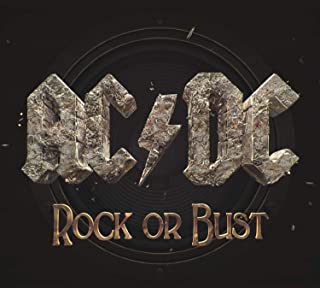
The middle part of this decade saw some wobbly days, all right. Wars raged, financial empires fell and killer viruses were in the air. Such uncertain times demanded absolute sureties. In rock‘n’roll terms, this has always meant AC/DC – recession-proof, fad-resistant, impervious to social or political change.
They spent the last 40 years fine-tuning the hard groove they discovered almost from the off, enabling them to survive the death of their original singer, line-up changes and whatever else fate threw at them. You could call them the world’s loudest comfort blanket.
But nothing can last forever. Early in 2014 it looked as though AC/DC’s time might be up. Malcolm Young, who founded the band with brother and fellow guitarist Angus Young in 1973, was ill. First reports were optimistic, suggesting that he might be back in time to record the new studio album, but his temporary absence was later appended to a permanent departure. Sadly he had been diagnosed with dementia, and eventually passed away in 2017.
But they carried on. Rock Or Bust, the product of AC/DC’s own uncertain times, was a towering retort to any notion that they might be finished. As the name suggested, it all came down to a simple consensus: let’s do what we do and write it large. It was an album that placed its faith at the feet of rock‘n’roll, both as a restorative force and also as a vaccine against all ills.
Nowhere was this more explicitly stated than on the title track, which heaved along on the kind of monolithic riff Angus Young patented sometime around the Stone Age. Phil Rudd’s drums crashed, Cliff Williams’ bass throbbed and Johnson squealed out a defiant, ends-of-the-earth manifesto: ‘In rock’n’roll we trust/It’s rock or bust.’ Quite.
Anyone searching for higher truths and wise revelations might have been best looking elsewhere. Songs such as Rock The House, Miss Adventure and Sweet Candy were either about shagging or wanting to shag. There was no graceful ageing going on here. They might have been at a stage where they should be writing about bad backs and pension plans, but it was AC/DC, lest we forget. And if they’ve taught us anything, it’s that the beating heart of great rock‘n’roll is forever locked in a state of adolescence.
It was not so long ago that AC/DC, in some quarters at least, were being derided for refusing to change or make any concession to moving fashions. Happily, they stuck it out. Rock Or Bust showed that AC/DC are still a band for this, or any other, age.
Our score: 8/10
